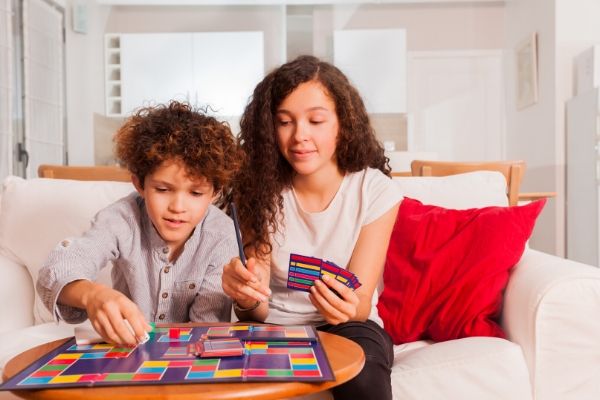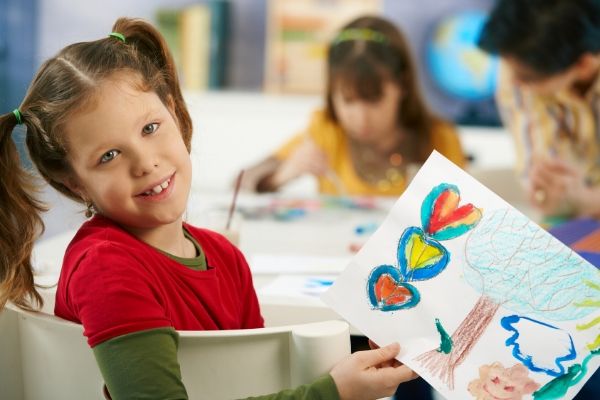
- Social Workers are university trained professionals who help people improve their personal and social well-being. They look at the whole person and also consider external factors or things in a person's environment which are making life challenging. Social Workers focus on a person's strengths and help equip people with a toolbox of skills and strategies so that so they can manage or overcome the difficulties that arise in their lives. -

What to Expect at Occumax
At Occumax we help your child to develop strong social connections with others around them. Our Social Worker will work with you and your family to help create a more harmonious family life, build your child's self confidence, emotional literacy and resilience.
Your Child’s Initial Assessment
An initial assessment usually takes about 1.5 hours. Both you and your child need to be present.
During this appointment, your Social Worker will discuss your main concerns and observe your child playing and interacting with others. Your Social Worker will ask you questions to get a sense of what life is really like at home for you, your child and other family members. If your child is experiencing challenges at school or in the community, they will also ask for background information about those environments too.
Your Social Worker will be on the look out for a range of foundation skills that are important for your child's social and emotional development, such your child's:

- Engagement and interaction skills
- Ability to start and maintain a conversation and stay on topic
- Understanding of social rules, particularly implied or hidden social rules and conventions
- Ability to pick up on the social cues of others
- Emotional literacy (e.g. understanding that there are a range of emotions and being able to express ones feelings in a way that matches the situation)
- Emotional regulation skills
- Problem solving and conflict resolution skills
- Self confidence, self-esteem and resilience skills when tasks are challenging or don't go according to plan
- Ability to manage frustration, anger or anxiety
- Ability to understand the perspectives of others and have flexible thinking
- Understanding what it takes to be a good friend, what traits to look for in a good friend and how to stay safe in the community

Your Child’s Intervention
After your Social Worker has analysed all the information gathered during the initial consultation, they will discuss the findings with you (usually in your second session). They will also discuss what intervention approach will best suit your child, set intervention goals and you can decide how often you would like therapy.
Parents are required to attend therapy appointments, unless otherwise agreed. This gives you the opportunity to see how to do the activities at home and the cues and prompts your child responds to. It also allows you to discuss any issues or questions you might have about your child’s development.
Sometimes older primary aged children and teenagers find it easier to talk about their thoughts and feelings without their parent present. If you or Social Worker feels that your child would work better if they attended the therapy session by themself, then this can be accommodated for. In these instances, parents are usually asked to come into the last 5-10 minutes of the session so that they can be briefed on strategies learnt during the session, discuss any issues that may have come up and given activities to try at home. This is also a time when parents can ask for issues that they might need guidance with.
Depending on your child’s needs, goals and age, your therapist may recommend or utilise the following intervention approaches:
- Individual therapy sessions (usually 60 minutes, weekly, fortnightly or monthly) utilising:
- Play based therapy
- Social Thinking Resources such as The Social Detective, Superflex,The Unthinkables,The Thinkables or Social Explorers
- Zones of Regulation Program
- Family Therapy
- Triple P (Positive Parenting Program)
- Cognitive Behavioural Therapy
- Relaxation Techniques
- Grief & Loss Counselling
- Counselling
- Expressive & Creative Arts Therapies
- Education of parents – We believe no question is too small or “silly” for you to ask
- Home program strategies and activities
- Consultation with teachers or other children involved in your child's life
- Referral to other support services in the community for you or your child
- Small group therapy sessions:
- Boys or Girls Groups
- Playing & Learning To Socialise (PALS) Group
- Social Explorers Group Using the We Thinkers! Curriculum
Book A Social Work Appointment
Book online or call our office on 07 4818 0445 to make an appointment for your child.
Got Questions?
Use the enquiry form below or call us on 07 4818 0445 to find out about how our Social Worker can help your child.
![]() We value your privacy and would never spam you
We value your privacy and would never spam you
Menu
Recent Posts From
Our Blog
-
 How To Get Wriggly Kids To Sit Still November 15, 2016
How To Get Wriggly Kids To Sit Still November 15, 2016 -

-
Five benefits of shaving cream for Occupational Therapy Home Programs February 18, 2014
